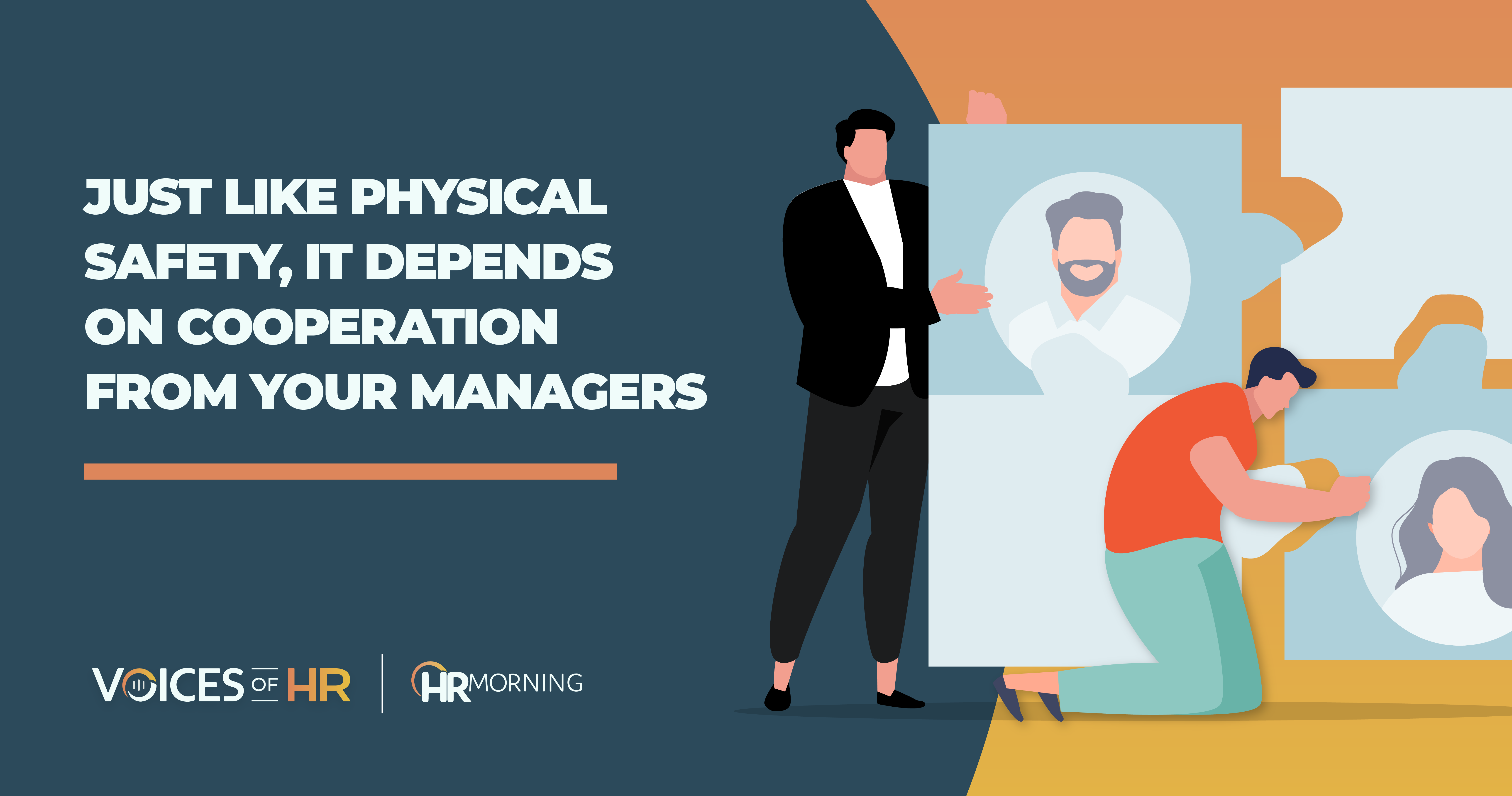HR plays a crucial role in shaping organizational culture. A culture of psychological safety and resilience is a must if you aspire to an environment where employees feel comfortable adapting to change, taking risks in the name of innovation, and speaking up.
Psychological safety is the belief that you won’t be degraded or shamed for sharing ideas, questions, concerns or opinions. Having a culture of psychological safety and support is especially important whenever a business faces challenges, such as economic uncertainty.
In an episode of the HRMorning podcast “Voices of HR,” Anna Gullstrand, chief people and culture officer for presentation engagement software company Mentimeter, shared several ways to build such a culture.
Understanding and building psychological safety
There are two levels of psychological safety, Gullstrand said. The first is a baseline where, for example, recently hired employees can detect a spirit of inclusion and they feel valued, welcomed and respected.
“The real psychological safety comes after you have had [differences of] opinions with someone, or when you are in a conflict about what to do, or how to do it … and then you manage to have that in a constructive way, where you actually end up understanding each other and making a better decision because you got input from the whole team. … [You realize,] ‘I voiced a contradictory opinion … and I’m still here. People respect me for my competence and I feel still valued at this company.’ … If you really want to have high-performing teams, you need to get through that phase,” she said.
Some practical steps to share with your managers:
- Promote open communication. Encourage employees to share their ideas, questions and concerns without fear of judgment or reprisal. Leaders should actively listen and acknowledge feedback.
- Frame mistakes as opportunities for growth and learning. This helps employees feel comfortable taking calculated risks and innovating.
- Model vulnerability. Leaders should be willing to admit their own mistakes and show vulnerability. This sets an example for others and builds a cultural foundation of openness and trust. “We want to show transparency is very important for us. And we want to show that this is a company where you can be yourself. You can bring your full self to work,” Gullstrand said.
- Add the SCARF (Status, Certainty, Autonomy, Relatedness, Fairness) model to your internal toolbox. Gullstrand shared that after serving a stint as Mentimeter’s interim CEO, when she moved back into her regular HR role her self-confidence dropped. She took the SCARF assessment to better understand what she was going through and openly shared those feelings with the CEO, who responded supportively.
Team building for fostering resilience
Companies are more resilient when they have engaged and motivated employees. “[People] are more resilient when we feel … safe in the group, but also we feel that we’ve got the support – we’ve got each other’s back, in a way. And we know that if we’re deepening relationships, that we will be more resilient. People will cope better with stress. … If people are more happy and enjoying life and feeling grateful, they will also perform better,” Gullstrand said.
To strengthen work relationships and improve collaboration, Mentimeter allocates a quarterly budget for each department to dedicate to team-building activities, such as dinner parties, cooking classes, pottery classes, kayaking outings and more.
Promoting resiliency with changes of scenery
An innovative approach that Mentimeter takes to togetherness is its optional annual temporary relocation program. This program gives employees the opportunity to work from a different location for up to a month, with the company covering travel and living expenses.
According to Gullstrand, the benefits of the program are well worth the investment because of:
- Increased employee engagement and retention.
- The stress test to the business. “If we manage to move our whole business somewhere else … and if we can just continue to operate … then we know that all our systems are in the cloud [and] everyone has [effective] communication channels no matter where they are situated,” she said.
- Boosted innovation. Being in a different city or country can spark creativity that leads to new solutions.


